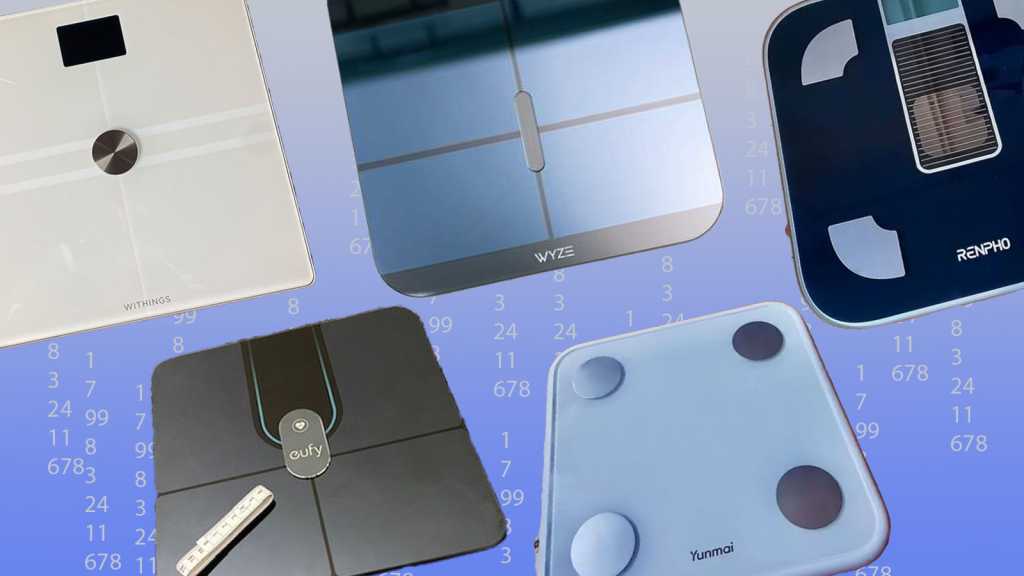If you want to improve your physical fitness, buying a smart scale is a good place to start. Hopping on a smart scale will show there’s more to fitness than just how much you weigh. It might sound counterintuitive but it’s true: the number of physical measurements a smart scale provides immediately takes the emphasis off that most emotive interger. Instead, as you embark on a healthy eating plan or exercise routine, you’ll have the satisfaction of seeing your muscle mass increasing and your metabolic age dropping. A smart scale will do all the hard work of logging and tracking your measurements.
You don’t need to spend a lot to get a good smart scale. We’ve tested lots of them and it’s surprising how much tech the budget-friendly models pack in. Any of the scales below will give you a good overview of your body composition, and some will also provide heart rate and heart health information. If your focus is on weight loss, you might want to choose one that calculates your BMR (basal metabolic rate). Your BMR will tell you how many calories your body expends at rest, so you can tailor a fitness plan to match.
If you have questions about how smart scales work or what they do, have a look at our FAQs below the chart, or check out our article on what to look for when you’re buying a smart scale.
Updated August 10, 2023 to add a link to our Withings Body Smart review.
Withings Body Comp — Best smart scale
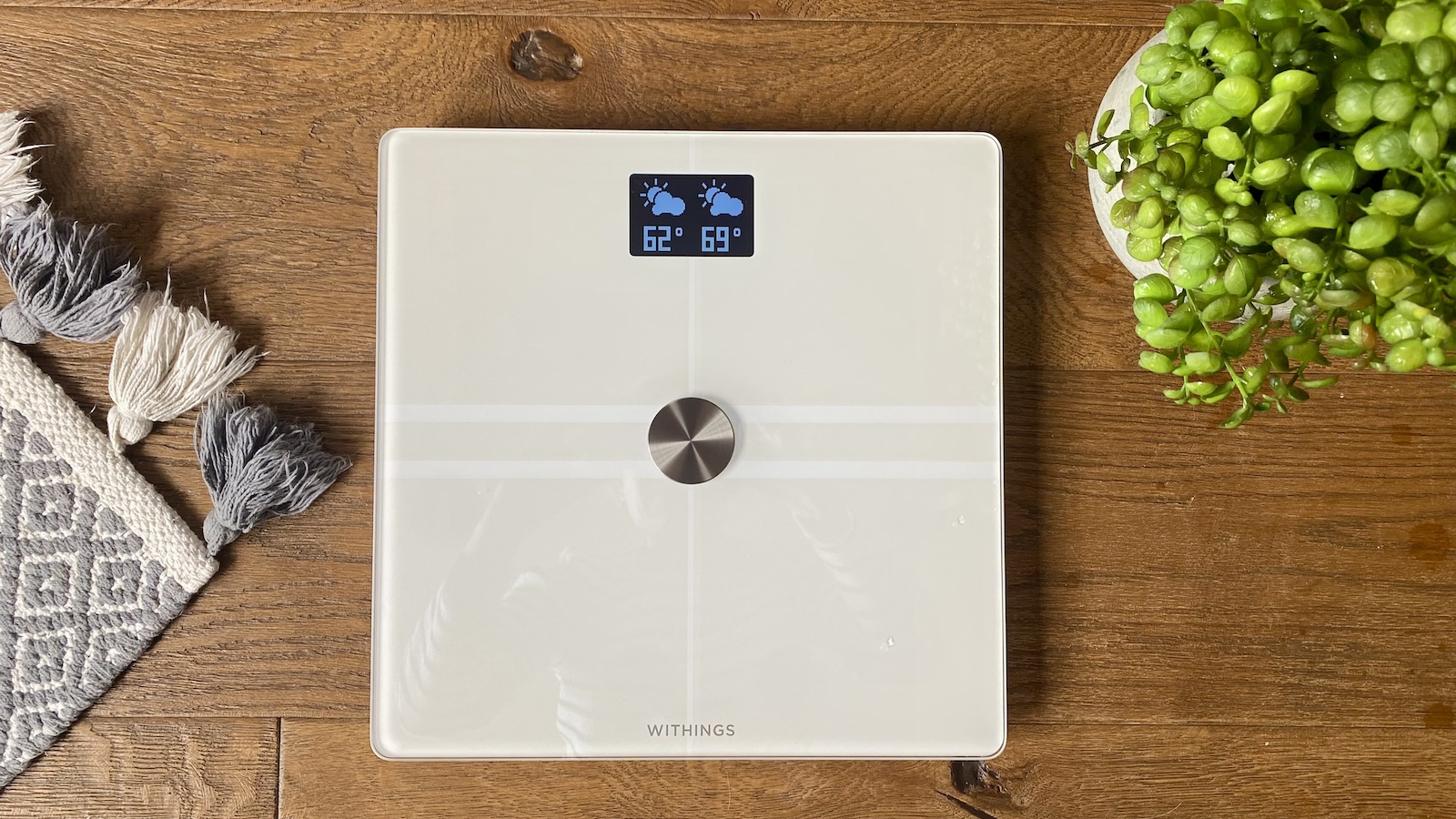
Pros
- Comprehensive range of metrics, including nerve and heart health
- Large scale with clear display
- Informative, data-rich app
Cons
- Expensive
- No USB charging option
The Body Comp is the mid-price option in Withings’ newest range. That being said, it’s expensive when compared to other brands. Still, it provides a huge breadth of information–more than any scale currently available apart from the Withings Body Scan. You can track your weight, muscle, fat and bone mass percentage, your lean mass and water mass, visceral fat index and BMI (body mass index, a measurement of body fat based on your height and weight). This scale provides more heart health information than any other brand as well, with measurements of heart rate, vascular age, and a pulse wave velocity reading that evaluates arterial stiffness.
Withings also throws in a nerve health score, measured via the sweat glands on your feet, which could deliver useful information for those diagnosed with diabetics, among others.
In addition to measurement tracking, the Withings app offerrs additional information to help you to interpret results. The scale itself is one of the largest available (measuring 12.8 x 12.8 inches), so it’s a good option for bigger people. It connects via Wi-Fi and Bluetooth. Our one gripe, apart from its price tag, is that it doesn’t include the option of USB charging. That said, it comes with batteries that should last for 15 months with a daily weigh-in.
Wyze Scale X – Best budget-priced smart scale
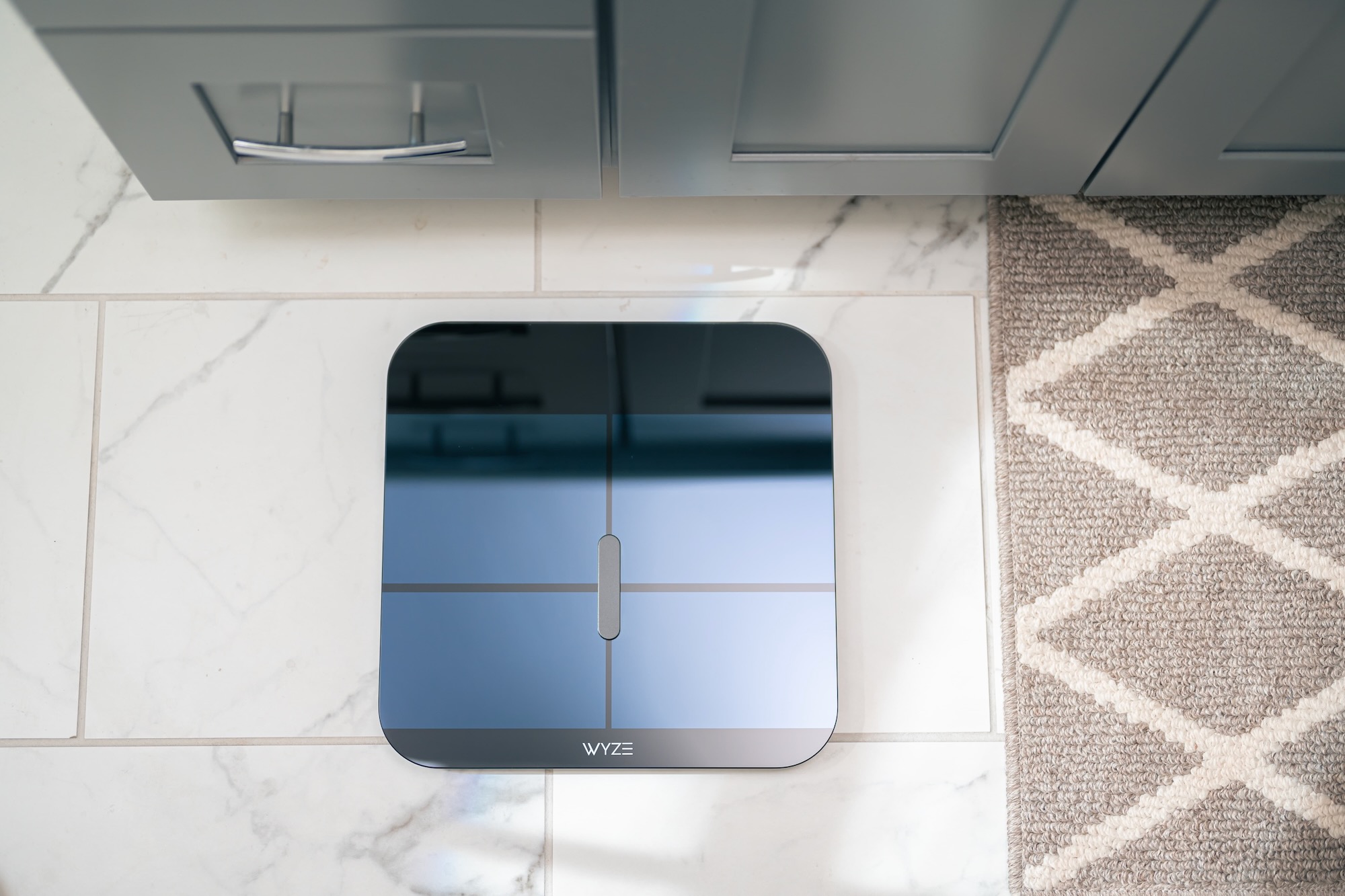
Pros
- Tracks 13 health measurements
- Large, easy to read display
- Well priced
Cons
- Does not provide exercise or nutritional advice
- Bluetooth-connection only
- Heart rate measurement is via smartphone, not the scale itself
This budget-friendly Wyze scale offers 13 measurements, from such basics as weight and body fat percentage, to heart rate, a feature that many lower-priced scales lack. It calculates your heart rate using the camera lens on your smartphone, however, not from just standing on the scale.
It’s a good option for people who are trying to eat well, as it calculates your basal metabolic rate, which will give you an idea of the number of calories to consume each day to stay at the same weight, lose weight, or gain.
Unlike the Withings app, however, the Wyze app is pretty bare bones. There’s no additional information on how to interpret results or eat or exercise to improve your health.
The Wyze X measures 11.8 x 11.8 inches, making it a mid-size option. It’s not as large as Withings scales, but it’s bigger than other budget models. It has a large, 3.5 inch monochrome display, but it only displays weight and body fat percentage. It connects to the app via Bluetooth. There’s no Wi-Fi option, which means taking your phone into the bathroom with you when you go to weigh yourself. But for people with a poor Wi-Fi connection where they keep their scale, this could be an advantage.
Renpho Elis Solar Smart Body Scale — Best charging method
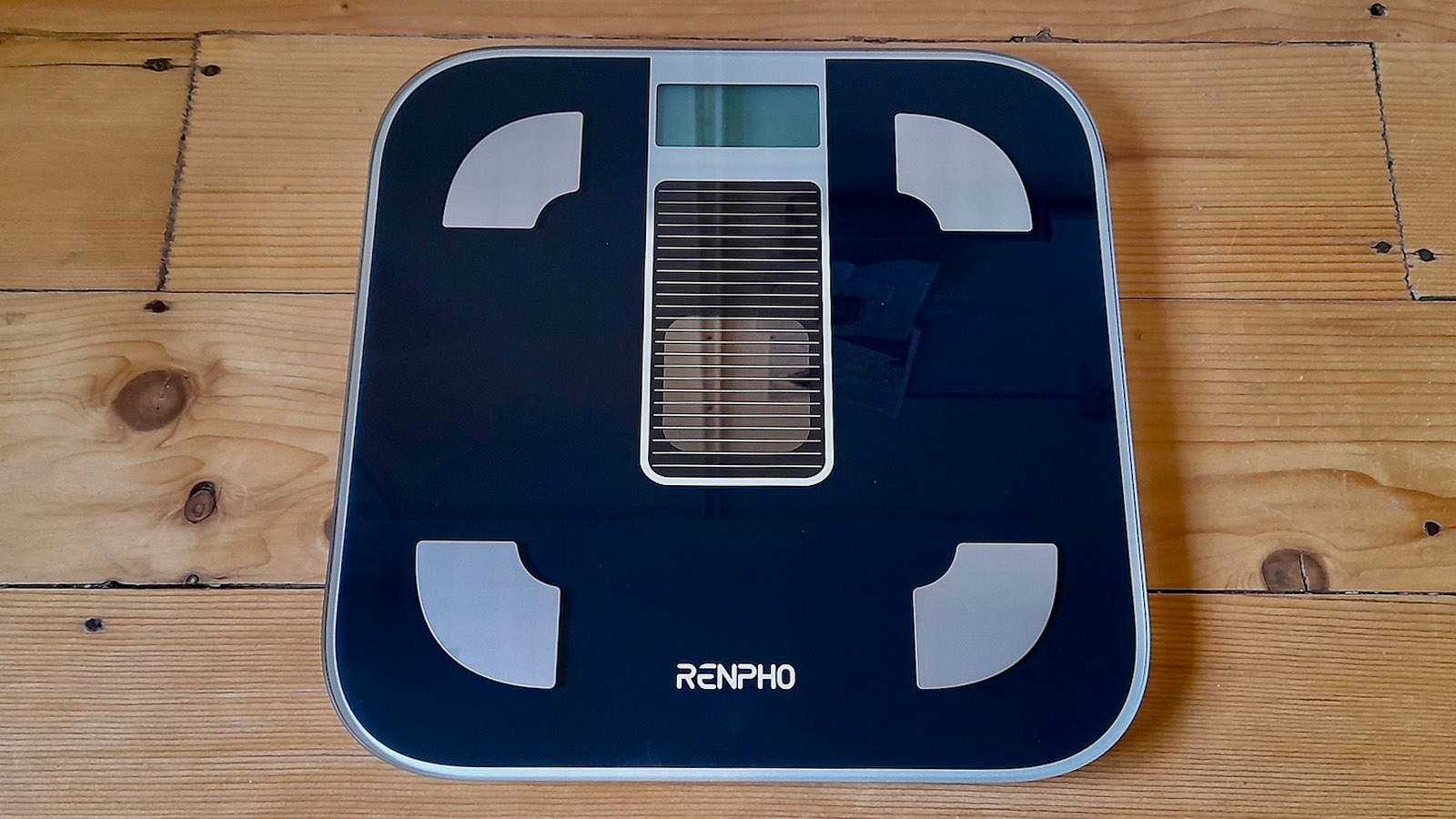
Pros
- Forget the batteries, it's solar powered
- 13 body composition measurements
- Unlimited profiles
- Syncs with Samsung Health, Apple Health, Google Fit, Fitbit, and MyFitnessPal
Cons
- App is basic and can be confusing to navigate
- No Wi-Fi connection, Bluetooth-only
A solar charging panel is one of the Renpho Elis’ best features. And it doesn’t need to sit in sunlight to charge–it can harvest energy from an electric light. This make it a great option for people who might want a scale for specific periods of training, after which it’ll be stored for a while.
The scale measures weight, BMI, body fat, fat free body weight, subcutaneous fat, visceral fat, body water, skeletal muscle, muscle mass, bone mass, protein, BMR, and metabolic age. That’s a comprehensive list.
The app experience, on the other hand, is pared-back. You’ll only be able to see trends of your weight, BMI and body fat, but the good news is that all your data is exportable to a large number of other apps and platforms. That said, the process is simpler with some than others. We also found that the evaluations that come alongside in-app measurements (underweight, obese, high, low, etc.) could be inaccurate and worrying.
At 11 x 11 inches, the scale itself is on the smaller side, and only displays your weight onscreen. It connects via Bluetooth only.
Eufy Smart Scale P2 Pro — Best mid-range smart scale
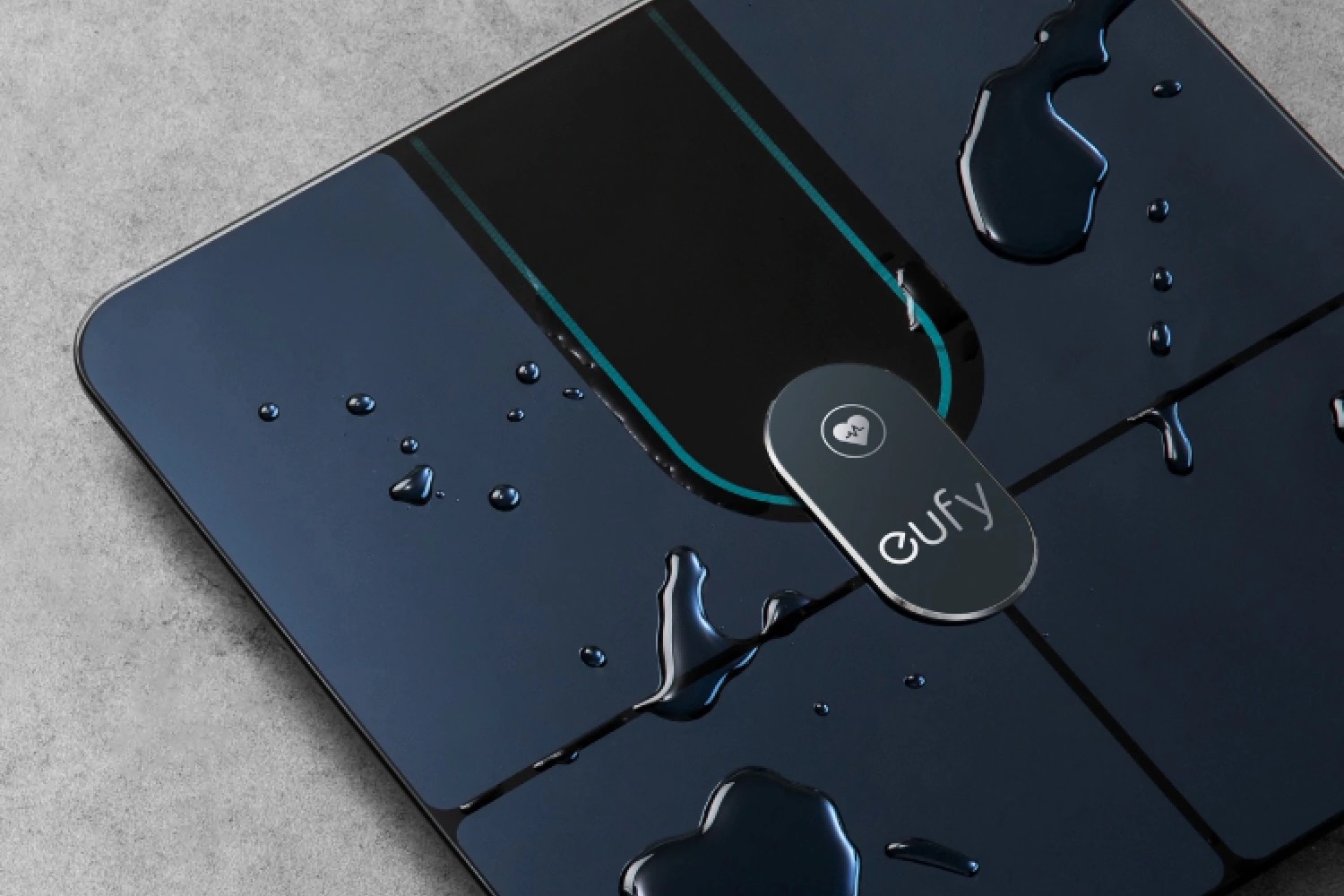
Pros
- 16 measurements, including heart rate
- Wi-Fi connection
- Comprehensive data graphing
Cons
- No nutritional advice
The Eufy P2 Pro is a great all-rounder, delivering 16 body measurements, including weight, body fat mass, visceral fat, subcutaneous fat percentage, bone mass, skeletal muscle mass, protein percentage, water content, Body Mass Index (BMI), and heart rate. It’ll also give you a body age, calculated from the other measurements and, via a Basal Metabolic Rate (BMR), will let you know how many calories you expend in a day, before exercise.
You’ll see your weight, heart rate, and fat content on the scale’s monochrome 2.9-inch screen. Eufy’s app will report the rest of your data, with an editable image of a figure with dimensions based on your measurements. You’ll find an evaluation alongside your measurements, which will help you to interpret the numbers. You can then set goals to work towards.
The scale itself is smaller than the Withings at 11 x 11 inches, but it can be used by people weighing up to 400 pounds. Altogether, this mid-priced scale is a solid choice: It doesn’t require a huge investment, but will deliver a lot in return.
Yunmai Smart Scale 3 — Best smart scale for beginners
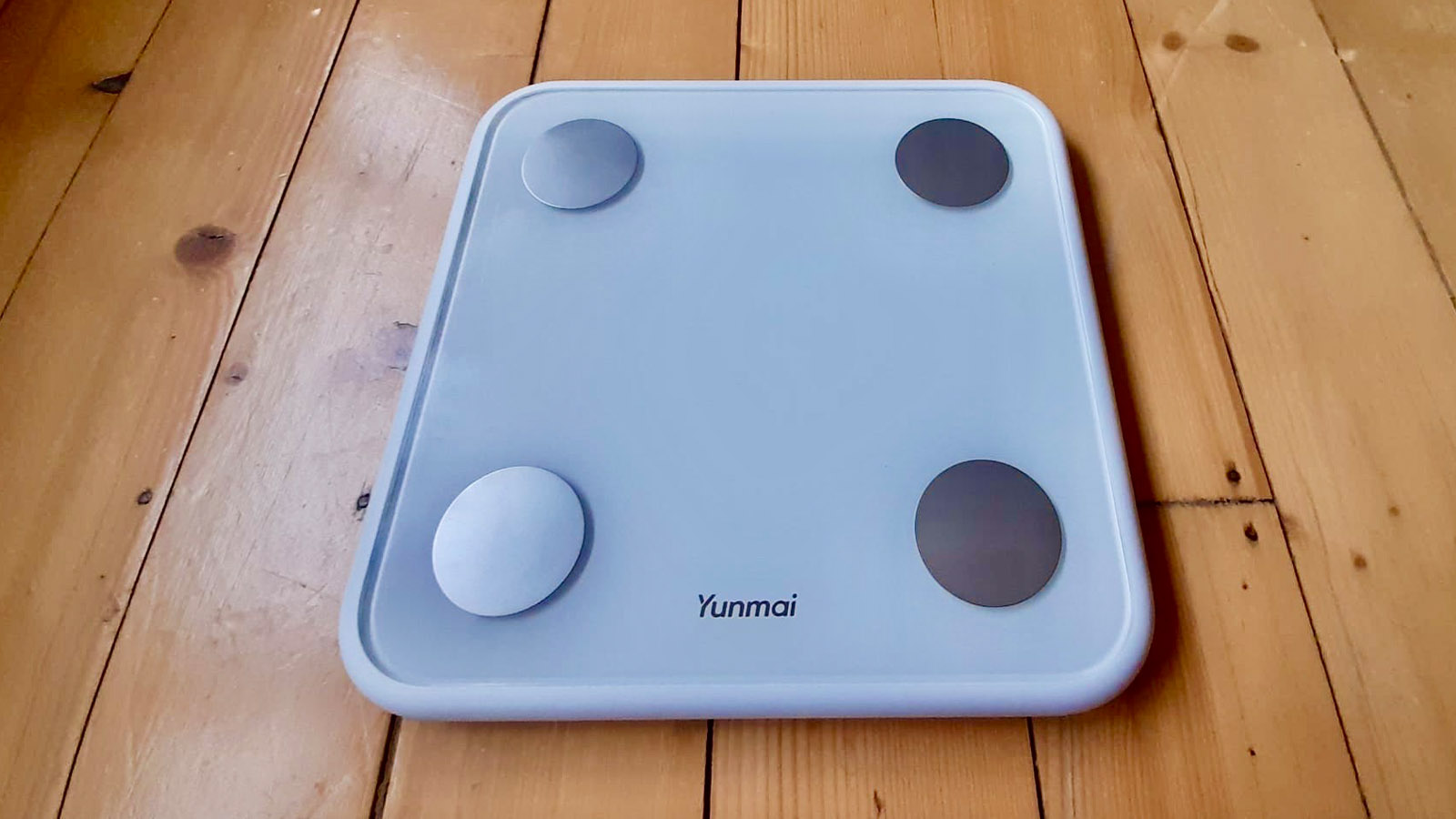
Pros
- 13 measurements
- Larger sized scale
- USB-C charging
- Compatible with Google Fit, Fitbit, Samsung Health, and Apple Health
Cons
- Only tracks weight and body fat percentage over time
- No heart rate measurement
- Bluetooth connection only
If you’ve decided that you want to improve your health or lose weight but don’t know where to start, you might want to invest in this scale from Yunmai, a Xiaomi company. It does all the basics and it does them well.
The Yunmai Smart Scale 3 delivers 13 measurements: weight, BMI, body fat percentage, skeletal muscle mass, water, protein, visceral fat index, bone mass, BMR, biological age, fat weight, body fat mass index, and fat-free mass. If your focus is on weight loss, this will give you plenty of information to go on. Just bear in mind that you won’t get any heart health measurements.
On the scale itself, you’ll see your weight and body fat percentage, the rest of the measurements will be sent to the app via Bluetooth. The app is simple, straightforward and easy to use. You can set a body weight goal and, instead of using critical labels to evaluate measurements, it uses red and green zones, which may be less off-putting. You’ll only get trends for weight and body fat percentage though, so it isn’t a good option for people who want to track increases in muscle mass, for example.
It’s a little bit larger than some other budget models at 11.8 x 11.8 inches and it weighs accurately up to 330 pounds. It charges via USB-C, which means there’s no need to buy batteries.
Smart scale FAQ
How do smart scales work?
Smart scales use bioelectrical impedance to measure your body composition. The user stands on the scale with bare feet, and the scale sends a mild electrical current up through their body. The scale then measures the body’s resistance to the current. Muscle is a good conductor, as muscle contains most of the body’s water. So the scale can use the resistance data to estimate how much of a person’s body is made up of muscle and how much is fat.
How accurate are smart scales?
Smart scales are not as accurate as a DEXA body composition scan, which is what a healthcare professional would perform in a medical setting to analyze bone mass, for example. But there’s no doubt that they’re the most accurate way to get a sense of your body composition at home.
What’s more important than pinpoint accuracy is how you use a smart scale. Rather than getting hung up on a specific number when you weigh yourself, you should use a smart scale to identify trends. If, for example, you’re trying out a healthy eating plan, or starting regular exercise, you should be able to track the benefits of your routine over a longer term.
Which smart scale is the most accurate?
This is a very difficult question to answer but what we can say is that most smart scales are accurate enough for most people. If you choose a scale from a reputable brand–like any of the scales we’ve tested above–it will be accurate enough to give you a good sense of your body composition. When we test smart scales, we notice small differences between the measurements given by different brands, but nothing that’s serious enough to be concerning.
If you move from one smart scale to another, you might spot that your measurements shift slightly, but it will be very hard to tell which one is the most accurate.
Which apps are smart scales compatible with?
Your smart scale will send its data directly to a dedicated app, for which you’ll need to create an account. When you open this app, you’ll be able to see all your measurements. But it might also be possible to link your smart-scale app with another fitness app or platform. This is where it gets tricky.
A high-quality app will work with Apple Health and Google Fit. There’s also a very good chance that you’ll be able to share data with Samsung Health and MyFitnessPal. In our experience, the Fitbit app is more difficult.
In some cases, apps and platforms work seamlessly together. In other cases, it’s a more involved process. If you have a particular fitness tracker you use or a fitness platform you’re heavily invested in, you should determine which smart scales are compatible with it before you start shopping.
What does a smart scale measure?
Smart scale measurements vary from brand to brand and from model to model. A smart scale is likely to give you some version of the following measurements:
- Weight
- BMI (Body Mass Index), a weight-based evaluation
- Body fat percentage
- Fat free body weight
- Body water
- Muscle mass
- Bone mass
- Skeletal muscle percentage
In addition, some scales will give you:
- Visceral fat score (visceral fat, as distinct from subcutaneous fat, is the type that is wrapped around your organs and has stronger links to poor health outcomes)
- Subcutaneous fat percentage
- BMR (Basal Metabolic Rate), the number of calories your body burns at rest
- Metabolic age
- Heart rate
Depending on the model, a Withings smart scale might also report:
- Segmental body composition (breaking down fat and muscle composition of arms, legs and torso, rather than providing a single breakdown for the entire body)
- Nerve health score
- Pulse wave velocity (a measure of arterial stiffness)
- ECG readings

